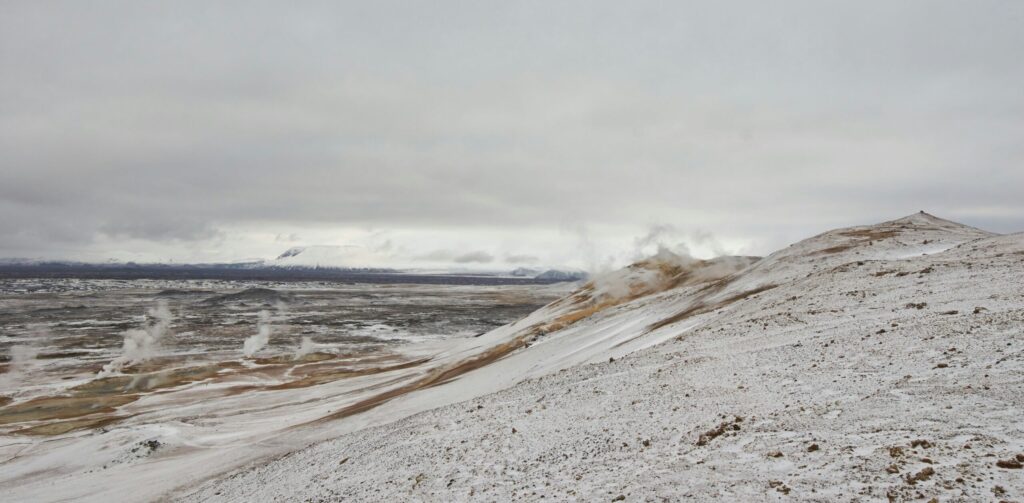The press are busy assuring us that the UK just had its hottest summer ever. To which the Daily Sceptic responds, never mind your memories of 1976. Or the Central England Temperature series which still lists 1976 in top spot, based on careful avoidance of the Urban Heat Island. Just believe the Met Office and their fake data. Not just misinterpreted, though also not part of a conspiracy. Just the result of zealots so sure it must be going to happen that they structured their weather station network so it would report it regardless. Yes, much of it is measured in cities and indeed at airports. But the big issue is that they are reporting data from over 100 weather stations that quite literally do not exist. They are making it up. And it says what they want.
Where, you may ask, are the skeptical media on this scandal? And the answer, as usual, is that they’re part of it. The Guardian, for instance, shrilled:
“This was the hottest summer on record. If it happens again next year, Britain’s ecosystems won’t cope”.
Which attains a politician-level combination of meaninglessness and inaccuracy. (And cross-scripting since it is, as such stories surprisingly often are, illustrated by a stock photo of two attractive young women basking in sunshine, in this case from 2022 with one wearing long pants, suggesting that normal people like warmth in summer.) What the headline writer, or the opinion writer, even think “ecosystems won’t cope” could possibly mean is not explained though apparently it has something to do with ticks. And of course we are told women and minorities hardest hit:
“The impacts of climate change on the British summer will be unequal across class, race and socioeconomic lines. More deprived areas are less likely to have tree cover for shade. The homes of lower-income families, renters, those with children and ethnic minority households are more likely to overheat.”
But the real kicker is that it’s all because of a tiny fraction of a degree that is itself a manufactured statistical artefact. But nowhere in the story is there any explanation of what they know about this year’s temperature and previous ones, let alone how they know it.
Instead, as usual, a non-traditional media outfit broke the real story, in this case Britain’s Daily Sceptic. (Which also broke the story, or non-story if you ask the conventional media, about the engine wash from those three fighter jets causing the supposed record high.) And it took a Freedom Of Information request to unearth the jiggery-pokery including claiming the data from the non-existent sites was based on “well-corroborated” nearby ones that um also didn’t exist.
It turns out that of the Met’s 380 stations, 80% are in the World Meteorological Organization’s junk 3 and 4 categories because they are so poorly protected from unnatural heat sources like, say, jet aeroplanes. According to the Daily Skeptic’s Chris Morrison 48% were in class 4 with uncertainties of 2° to 5°C, which is a bit awkward when the usual suspects are reporting temperatures, including ones that allegedly break records, to 0.01°C.
Or not reporting anything since they don’t exist any more. For instance Leverstock, which closed in 2010. And as Morrison notes, in their public record the Met then show you five nearby stations to justify a Leverstock reading. And of those five, guess how many are also closed? Right. Five.
Now it’s obvious what a truly public-spirited scientific organization would do in such a situation. And the Met did it. It refused to answer any more Freedom Of Information requests from the researcher in question because they were vexatious and not in the public interest
Al Jazeera, possibly not a friend to Britain or the West generally, sneered:
“UK had hottest summer since records began, Met Office says/ The news comes as the opposition Conservative Party pledges to drill all remaining North Sea oil and gas, if elected.”
Boo Conservative Party! Boo oil and gas! Crush your economy!
Likewise China Global Television Network, also arguably not committed to the flourishing of Western economies, societies or defence capabilities, wrote “Climate change drives Britain toward hottest summer on record”.
It does not get into the methodology, including the question how “climate change”, a statistical description of long-term changes in weather, can “drive” anything. But it does comment that this average of 16.13, if it held up from August 25 through 31:
“would move 2018 off the top spot and push 1976 out of the top five warmest summers, the office said in a report released earlier this week.”
It then conceded that:
“The summer of 1976 is still one of the most memorable in British weather history. That year, multiple locations across England experienced heatwave-like conditions for more than two weeks. There were 16 days in which temperatures exceeded 32 degrees Celsius, compared with nine such days during the summer of 2025. While this year has not seen as many intense spikes in extreme heat, what sets 2025 apart is the consistency of the warmth.”
Which is already a bit suspicious, since a record hot summer might well be expected to have long stretches of hot weather. Also suspicious is:
“Between 1991 and 2020, Britain’s mean summer temperature was 14.59 degrees Celsius, over 0.8 degrees higher than the period from 1961 to 1990, it added.”
Pfui. Nobody knows the temperature to two decimal places in 1962 even in one single place in the UK, let alone everywhere. Indeed, as we’ve said before, even with the latest measurement tools and a great deal of time to comb through a very small space, say your dining room, you’d be unable to specify the average temperature to that degree of precision. Yet they, here meaning the Met with the press gullibly in tow, casually do it for an entire country, replete with islands, caves, fields, rocks and all manner of pockets of warmth or cool big or small. But what do any of these objections matter compared to the fact that at least a fifth of the 2025 figures are just made up, while most of the rest are poorly measured?
We’re meant to think none of it matters because (drum roll please) experts say. As in:
“Experts noted that climate change has the power to turn previously unremarkable years into record-breaking ones, as baseline conditions steadily rise.”
Utter gibberish. How can “climate change” turn a past year into anything other than what it was back when it happened? Will 1982 suddenly break records? Or is it that 1976’s long hot spells are now… no, it just makes no sense. But it’s not only propaganda organs from hostile regimes.
The venerable and once august BBC also wrote “Summer 2025 confirmed as UK’s hottest on record”. Right before referring to “provisional statistics” so it wasn’t confirmed. What do they teach them in schools, including journalism and meteorology? Well, this kind of nonsense:
“Provisional statistics show that the mean temperature across the country – which includes overnight lows as well as daytime highs – was 16.10C (60.98F). This is 1.51C (2.72F) above the long-term average and well ahead of 2018, the previous warmest summer, which had a mean temperature of 15.76C (60.37F).”
Right. 2.72°F above an average spottily measured using mercury or even alcohol thermometers. Sure thing, buddy. And of course:
“It is in line with evidence that summers are getting hotter and drier because of climate change.”
To repeat, if summers are getting hotter and drier it’s not because of climate change, it is climate change, a statistical measure of alterations in weather patterns. Climate change is not an evil wizard in a high castle casting anti-rain spells. Though speaking of wizards, the Beeb goes on:
“Met Office climate scientists have found that a summer as hot or hotter than 2025 is now 70 times more likely than it would have been in a ‘natural’ climate, with no human-induced greenhouse gas emissions.”
So the WWAzards are at it. And arguably the BBC itself is now itself also a propaganda organ from a hostile regime. Though it adds:
“2025 has pushed the famous summer of 1976 out of the UK top-five, meaning the five hottest summers have all occurred since 2000…. what is notable about this summer is how long-lasting and widespread the heat has been – with temperatures widely meeting heatwave criteria on four separate occasions.”
Which seems directly to contradict that CGTN business about the long hot spells in 1976. But again, everything wrong with these stories above is dwarfed by the fact that the data is cooked and the journalists didn’t even try to check it out.
Not even the bit where in 2002 “Thermometers hit 40.3C at Coningsby in Lincolnshire” without mentioning that it was on the tarmac of an airbase when three RAF Typhoon jets landed which, you’d think, was not entirely irrelevant. And not to quibble, but it wasn’t “thermometers” in the plural, it was one “platinum resistance thermometer” or PRT. But journalists have no interest whatsoever in how these temperatures are measured and whether they are reliable.



I am not a scientist but I am ....or was before I got old....a motorcycle rider. When all of this weather station reporting started I replied numerous times that it is frequently colder on the east side of a hill and warmer on the west side because the air is compressed against the west side by wind and decompresses as it travels to the east side (in the Northern Hemisphere), when riding a motorcycle, you can easily feel the temperature difference! Frankly, there are so many variables related to gathering temperature data from ground stations that I believe they are worthless for the purpose of measuring small changes in temperature over an extended period of time! For example, you can have a perfectly situated thermometer in 1980 but by 2025, everything around that thermometer has changed.
I also rode motorcycles…plus was involved in performance testing of process heat transfer equipment before final payment to contractors and vendors. It’s a matter of degree…pun intended. Typical weather station thermometers are very good for telling you whether it is motorcycle riding weather outside, or not. For telling you whether an industrial process is being controlled within a quarter of a degree….well not so easy….so you have to use statistics, take lots of readings you assume are random, apply your formula using the square root of n and voila, your report claims temperatures accurate to .05 degrees…..and if your boss doesn’t like the answer, he gets you to do the report over with all the high or low readings thrown out as “spurious”, interestingly to justify payment or non-payment of bills according to the boss’s desire. Very similar to IPCC objectives….
I was in Cornwall in the Summer for 7 weeks, had one warm day and managed to get out in my boat twice. I often wonder if these Charlatans ever look out of the Window. AND I do remember 1976, now that was different league.
Motorbike rider here....not necessarily relevant, but I thought I'd say hello. Also, believe nothing the BBC or the Met Office says, prints, or publishes. All highly suspect people.
We lived in England in 1976 and traveled to Scotland in May. It was indeed hot, and dry. Our ~10 days in Scotland were mostly in the northwest and yet we had no rain. Our time was mainly in Oxford and London and both were hot and dry as well.
I believe that the RAF Coningsby record high temperature only lasted just over one minute. In other words, it was a hest spike obviously related to the landing of jet planes and unconnected with climate or even weather.
In 1976 I joined the RAF and spent the summer at the Basic Training camp at RAF Swinderby near Lincoln. I remember how hot the summer was, the hottest I can remember in my lifetime. On looking back most of the summers were hot and dry during my childhood, and the winters were cold and we always seemed to have snow at Christmas.
On a weekend pass, I visited relatives in Nottingham one weekend and after 10-15 minutes in the sun, my arms were covered in small blisters. When I rubbed my hand over them they all burst and the skin peeled off - not a pretty sight and rather uncomfortable.
The main reason I will never forget that summer is because I ended up with hypothermia after an exercise in the camp. We had to carry out a 15-mile route march before lunch outside the camp. We were then supposed to do an assault course but the rain came on very heavy so that was abandoned. We all got soaked to the skin at this point but then the powers that be decided we should do a Search and Rescue mission. We were split into small groups, one of each group was taken away as the 'injured party', and we were told what his injuries were and given a map reference where to find him. None of the 'injured' were rescued by us as the weather got even worse. Several of the 'search and rescue' parties had to be rescued as at least four of us, myself included, were wandering about in a world of our own, suffering from hypothermia.